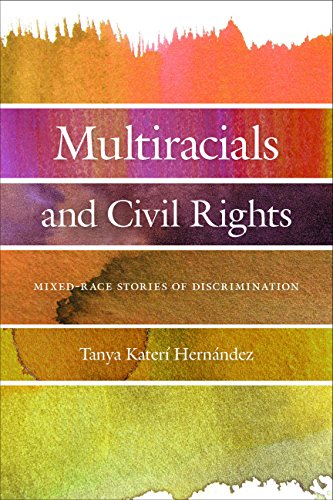Color that Matters: A Comparative Approach to Mixed Race Identity and Nordic ExceptionalismPosted in Books, Europe, Identity Development/Psychology, Media Archive, Monographs, Social Science on 2018-10-09 04:02Z by Steven |
Color that Matters: A Comparative Approach to Mixed Race Identity and Nordic Exceptionalism
Routledge
2018-09-30
240 pages
Hardback ISBN: 9781138050143
Tony Sandset, Junior Research Fellow
University of Oslo, Norway
This book examines the ways in which mixed ethnic identities in Scandinavia are formed along both cultural and embodied lines, arguing that while the official discourses in the region refer to a ‘post-racial’ or ‘color blind’ era, color still matters in the lives of people of mixed ethnic descent. Drawing on research amongst people of mixed ethnic backgrounds, the author offers insights into how color matters and is made to matter, and in the ways in which terms such as ‘ethnic’ and ‘ethnicity’ remain very much indebted to their older, racialized grammar.
Color that Matters moves beyond the conventional Anglo-American focus of scholarship in this field, showing that while similarities exist between the racial and ethnic discourses of the US and UK and those found in the Nordic region, Scandinavia, and Norway in particular, manifests important differences, in part owing to a tendency to viewed itself as exceptional or outside the colonial heritage of race and imperialism. Presenting both a contextualisation of racial discourses since World War II based on documentary analysis and new interview material with people of mixed ethnic backgrounds, the book acts as a corrective to the blind spot within Scandinavian research on ethnic minorities, offering a new reading of race for the Nordic region that engages with the idea that color has been emptied of legitimate cultural content.
Table of Contents
- Acknowledgements
- Series Editor’s Preface
- 1. Introduction
- Part I: Methodology and Theory: Towards Grounding the Book
- 2. Research Horizons: Inspirations and Tensions
- 3. Theoretical Inspirations and Methodological Tools
- Part II: Epistemic Documents, Racialized Knowledge and Mundane Language
- 4. From Race to Ethnicity: The Purification of a Discourse; UNESCO and Norway’s Western Others
- Part III: In Living Colour; The Lived Life of Mixed Colours
- 5. Discourses of Race And Ethnicity: A Difficult Deployment Of Colour
- 6. Performing Mixed Ethnic Identities: Colours That Matter
- Part IV
- 7. No Guarantees, Just Paradoxes to Offer: In Lieu Of The Typical Conclusion
- Appendix: List of Peopled Interviewed
- Bibliography
- Index



